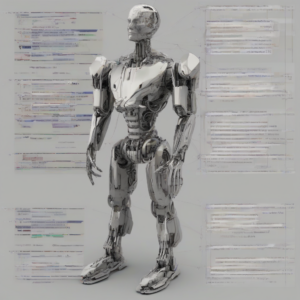Unlocking Human Potential: A Deep Dive into the Industrial-Organizational Psychology PhD
An Industrial-Organizational (I-O) Psychology PhD represents a significant commitment to advancing the understanding and application of psychological principles in the workplace. This rigorous program of study equips graduates with the expertise to conduct cutting-edge research, develop innovative solutions to organizational challenges, and contribute meaningfully to the field of human resource management and organizational effectiveness. This comprehensive exploration will delve into the curriculum, career paths, research areas, and the overall experience of pursuing an I-O Psychology PhD.
Curriculum and Coursework
The typical I-O Psychology PhD curriculum is designed to provide a strong foundation in both theoretical and applied aspects of the field. Core courses often include:
- Research Methods: This encompasses quantitative and qualitative research designs, statistical analysis, data analysis techniques, and the ethical considerations of research.
- Statistical Modeling: Advanced statistical methods such as structural equation modeling, hierarchical linear modeling, and multilevel modeling are crucial for analyzing complex organizational data.
- Organizational Behavior: This explores group dynamics, leadership styles, organizational culture, and the impact of organizational structures on employee behavior and performance.
- Personnel Psychology: This focuses on employee selection, training and development, performance appraisal, compensation and benefits, and other human resource management practices.
- Human Factors/Ergonomics: This explores the interaction between humans and machines, work design, and the optimization of work environments for safety and efficiency.
- Organizational Development: This encompasses interventions aimed at improving organizational effectiveness, such as team building, change management, and organizational learning.
- Social Psychology: Understanding social influence, attitudes, and group processes is fundamental to navigating organizational dynamics.
- Cognitive Psychology: Knowledge of cognitive processes like attention, memory, and decision-making is essential for designing effective training programs and understanding human error.
Beyond core coursework, students typically specialize in one or more areas of I-O psychology, allowing for a deeper exploration of specific research interests. This specialization often involves elective courses and independent study under the guidance of faculty mentors.
Research and Dissertation
The cornerstone of the I-O Psychology PhD is the dissertation, a significant piece of original research that contributes new knowledge to the field. The process typically involves:
- Developing a Research Question: Identifying a gap in the existing literature and formulating a research question that addresses a significant problem in I-O psychology.
- Literature Review: Conducting an extensive review of the relevant literature to establish the theoretical framework and identify existing research on the topic.
- Methodology: Designing a rigorous research study, selecting appropriate methods, and collecting and analyzing data.
- Data Analysis: Utilizing advanced statistical techniques to analyze the collected data and draw meaningful conclusions.
- Dissertation Writing: Presenting the findings in a clear, concise, and scholarly manner, adhering to the standards of academic writing.
- Defense: Defending the dissertation in front of a committee of faculty members.
Throughout the dissertation process, students receive mentorship and guidance from faculty advisors, who provide support, feedback, and direction. The research itself can take various forms, including experimental studies, field studies, meta-analyses, and qualitative research.
Career Paths and Opportunities
A PhD in I-O Psychology opens doors to a wide range of career opportunities. Graduates are highly sought after by:
- Academia: Many graduates pursue careers as professors at universities and colleges, teaching and conducting research in I-O psychology.
- Government and Nonprofit Organizations: Government agencies and non-profit organizations often employ I-O psychologists to conduct research, evaluate programs, and provide consulting services.
- Consulting Firms: I-O psychologists in consulting firms work with organizations to improve their effectiveness, solve human resource problems, and enhance employee well-being.
- Corporations: Large corporations often employ I-O psychologists in-house to handle human resources, conduct research, and improve organizational practices.
Specific job titles can include:
- Professor of Industrial-Organizational Psychology
- Organizational Consultant
- Human Resources Manager/Director
- Research Scientist
- Talent Management Specialist
- Employee Relations Specialist
- Training and Development Specialist
Research Areas within I-O Psychology
The field of I-O psychology is vast and encompasses numerous specialized research areas. Some prominent areas include:
- Selection and Assessment: Research on developing and validating selection tools such as personality tests, cognitive ability tests, and situational judgment tests.
- Training and Development: Research on designing and evaluating training programs to improve employee skills and knowledge.
- Performance Management: Research on developing effective performance appraisal systems and strategies for improving employee performance.
- Organizational Change and Development: Research on managing organizational change, improving organizational culture, and fostering organizational learning.
- Job Design and Ergonomics: Research on designing jobs that are both efficient and safe, minimizing workplace injuries and maximizing employee satisfaction.
- Leadership and Management: Research on effective leadership styles, management practices, and organizational leadership development.
- Work-Life Balance: Research on the interplay between work and personal life, strategies for promoting work-life balance, and reducing work-related stress.
- Diversity and Inclusion: Research on creating inclusive workplaces that value diversity and promote equity and fairness.
- Positive Organizational Psychology: Research on promoting employee well-being, engagement, and resilience in the workplace.
- Organizational Justice: Research on fairness in the workplace, including distributive justice, procedural justice, and interactional justice.
Choosing the Right I-O Psychology PhD Program
Selecting the right PhD program is crucial for success. Factors to consider include:
- Faculty Expertise: Identify programs with faculty whose research interests align with your own.
- Research Opportunities: Look for programs that offer ample research opportunities, such as access to funding, research labs, and collaborations with organizations.
- Program Reputation: Consider the program’s reputation and ranking within the field of I-O psychology.
- Financial Support: Explore funding opportunities, such as fellowships, assistantships, and scholarships.
- Location and Environment: Consider the location of the program and the overall learning environment.
The Challenges and Rewards of Pursuing a PhD
The PhD journey is demanding, requiring significant time, effort, and dedication. Challenges may include:
- Rigorous Coursework: The curriculum is intellectually challenging and requires a high level of academic rigor.
- Dissertation Process: Completing the dissertation can be a lengthy and demanding process, requiring persistence and resilience.
- Time Commitment: A PhD requires a significant time commitment, often exceeding 4-6 years of full-time study.
- Financial Considerations: Funding the PhD program can be a significant financial undertaking.
Despite the challenges, the rewards are substantial. The PhD provides:
- Advanced Knowledge and Skills: A deep understanding of I-O psychology principles, research methods, and applications.
- Career Advancement: Access to a wide range of high-demand career opportunities.
- Intellectual Stimulation: The opportunity to contribute to the field through original research and scholarship.
- Personal Growth: Development of critical thinking, problem-solving, and communication skills.
In conclusion, pursuing a PhD in Industrial-Organizational Psychology is a challenging yet profoundly rewarding endeavor. It provides a unique opportunity to make a substantial contribution to the field, advance knowledge, and shape the future of work.





